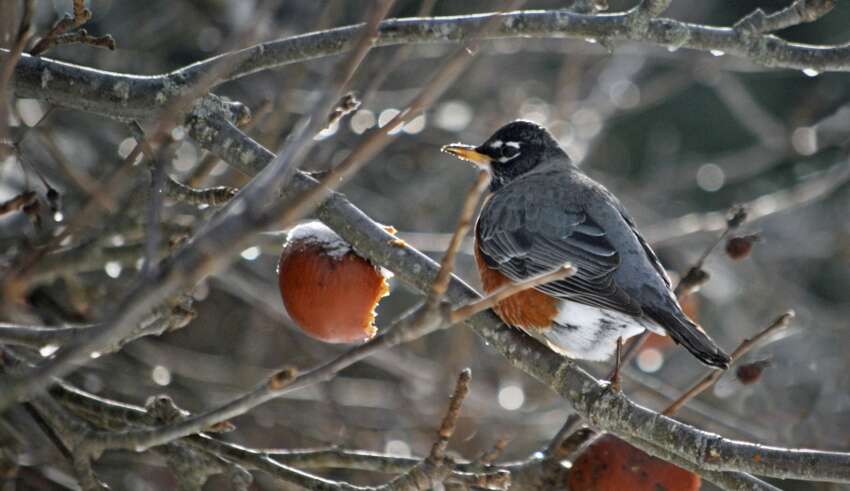
Originating in many instances from the Santa Fe Institute in New Mexico, the case made for the viability of nonhierarchical systems arises in the study of many biological systems that operate in a nonhierarchical manner. In fact, we find that most biological systems are non-hierarchical. They range from the biological webs that operate in forests (to which I will turn later in this essay) to the hives of bees and packs of wolves. It is only the human being and a few other primates that prefer hierarchies with some members of a tribe or pack exerting authority over other members.
When an environment is complex (with many elements being not only present but also interwoven with all other elements) than many options are available. Many paths can be taken. Under such conditions we are likely to be confused, in a frenzy, undirected. We can illustrate this state by turning to the flocking of birds. Birds tend to flock because predators find it hard to focus on any one bird in the flock. The same reason exists for the schooling of fish.
Let’s take the perspective of a hawk or shark. He is swooping in on the flock of birds or school of fish. However, there are so many options for a hawk or shark to grab that he loses focus and can’t home in on any one bird or fish. The hawk swopes through the entire flock and catches none of them. His only hope is that there will be a bird flying independent of the flock on which he can focus. The shark charges through the school and finds himself with none of the fish in his jaws. The shark is only successful when there is a single fish (or person swimming alone at night—as in “Jaws”).
Not only do birds flock and fish swim in schools, the challenges we face as human beings also often come to us as swarming messes (a term I use to describe problems with many layers that are often shifting). More precisely, challenges that are fluid in nature can often be difficult to address. Like the Hawk or Shark, we find it hard to concentrate on issues that contain VUCA-Plus properties. Turbulence in particular reigns supreme—and we must adapt or fall victim to the swirling confusion. We become Hawks who fail to achieve anything and Sharks who remain hungry.
It is only when there are multiple players coming from multiple perspectives that the predator can be successful. Female lions hunt in packs, surrounding a herd of antelope and then quite gracefully attacking in unison from all directions, finding a single antelope to wound and then kill. While the male lion sits on the sidelines, waiting for the occasional big challenge mounted by some other male lion, the female lions have exhibited collaborative planning and execution. Do we find something similar operating in the Lincoln cabinet. Are diverse perspectives being safely entertained as plans are made and enacted in the war being mounted against the Confederacy?









